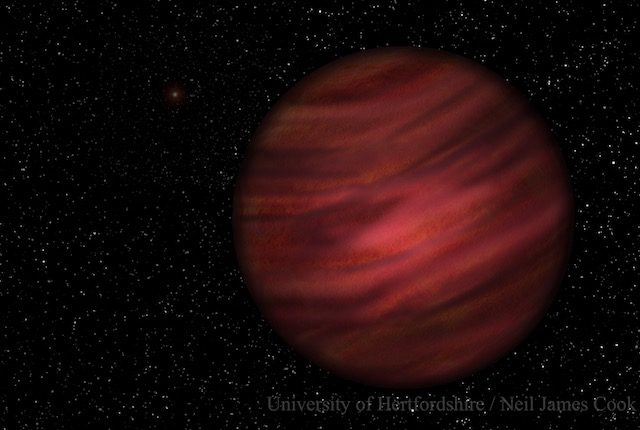SUMMARY
This is AI generated summarization, which may have errors. For context, always refer to the full article.

PARIS, France – Astronomers have found the widest-known solar system, with a huge planet so far from its star that it takes nearly a million years to complete an orbit, according to a new study.
Long thought to be a free-floating or lonely planet without a solar system “home”, scientists have now linked it to a star about a trillion kilometers away.
They were observed to be moving through space together, and both are about 104 light years from our Sun – implying an association.
“This is the widest planet system found so far and both the members of it have been known for 8 years,” study lead author Niall Deacon of the University of Hertfordshire said in a statement.
But “nobody had made the link between the objects before.
“The planet is not quite as lonely as we first thought, but it’s certainly in a very long distance relationship.”
The findings were reported Tuesday, January 26, in the Monthly Notices of the Royal Astronomical Society.
The planet, dubbed 2MASS J2126, is about 7,000 Earth-Sun distances from its star, giving it the widest orbit known. One circuit around its star takes the around 900,000 Earth years.
It is so wide, in fact, that the planet would have completed fewer than 50 orbits in its entire lifetime.
“There is little prospect of any life on an exotic world like this, but any inhabitants would see their ‘Sun’ as no more than a bright star, and might not even imagine they were connected to it at all,” said a statement.
The planet is estimated to have about 11.6 to 15 times the mass of Jupiter.
“How such a wide planetary system forms and survives remains an open question,” said study co-author Simon Murphy of the Australian National University. – Rappler.com
Add a comment
How does this make you feel?
There are no comments yet. Add your comment to start the conversation.